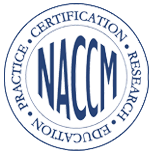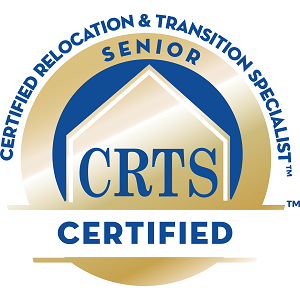Preparing for the Holidays: How to Identify and Manage Health Decline in Aging Family Members
One of the things we love about the holidays is a chance to reconnect with aging loved ones who live far away. During this time of year, families gather together for the first time in months and may be surprised to realize that your aging parents or grandparents aren’t how you remember them.
Health decline in aging adults can take many forms, such as reduced mobility, cognitive impairment, or even personality changes. Recognizing these signs is one thing, but knowing what to do and how to address them compassionately can be challenging.
If you haven’t seen your relatives in several years due to COVID-19, it may surprise you how they’ve changed since you were last together. As you prepare for the holiday season, it is a good idea to understand what health decline looks like and how you can help a loved one deteriorating condition.
Generally, this is one of the few times of the year that the whole family is together. You may not have the same opportunities throughout the year to fully assess the state of your aging parents and relatives. This makes it much harder to recognize the signs that typically indicate they are in need of some extra help as they begin to present themselves.
It’s also essential to discuss appropriate care measures with your loved ones, whether home care, assisted living, or possibly a nursing home.
How to Identify Health Decline in Seniors
Senior health decline can present itself in many ways, and the signs aren’t always as apparent as you might expect.
For example, some adults begin to display signs of cognitive decline long before we’d expect them to, which is sometimes as early as their 50s. Some of the symptoms to look out for with cognitive impairment include difficulty finding words, forgetting thoughts in conversation, issues recalling events or details, and slowed speech.
Many cognitive symptoms can indicate early Alzheimer’s disease. Symptoms may include:
- Repeatedly asking the same questions
- Frequently losing items
- Forgetting recent events or conversations
- Showing poor judgment
- Struggling to make decisions
- Obsessive, anxious, or impulsive behavior
- Frequent mood swings ranging from depression to agitation
There are also physical signs that a person’s experiencing general health decline, such as slowed movements or difficulty with motor skills. If they struggle to lift things, open lids, or move long distances when they have been able to do so, it could indicate that your loved one needs extra support.
Other signs of senior health decline include:
- Anxiety
- Confusing words or names
- Memory problems
- Changes in financial habits
- Weight loss or gain
- Pain or soreness
- Issues with balance and coordination
- Lack of physical strength
- Changes in posture or gait
While it can be disheartening, it’s important to remain positive so that you and your loved ones don’t begin to feel as though hope is lost. With the right services and resources, many aging adults can improve their health and live fulfilling active lives. It just requires knowing when to intervene and how to choose the proper care for their needs.
How to Address Health Decline in Senior Loved Ones
You may also visit your loved one and realize that their overall quality of life has shifted. It could be that they now have a much messier home, have neglected their self-care and personal grooming habits, or seem more sullen or withdrawn than they used to be. These problems could stem from a mental health condition or indicate they have issues performing regular activities (such as cleaning and grooming).
It’s not uncommon for many aging adults to ignore initial signs of health decline. They may write it off as a minor injury or deny they have any symptoms altogether. Be gentle with them, and avoid pointing out any issues you notice in a way that could embarrass them.
Instead, speak to them privately. Start by asking them how they’re feeling, and if they say they’re fine, compassionately point out some of the symptoms you’ve noticed. Having some resources in place can make it easier to guide the conversation toward a positive next step, like a cognitive screening or a visit to their doctor.
As we age, we naturally decline, but there is a difference between the natural decline brought on by the wears and tears of aging and a drastic decline brought on by an outside influence. This is why it’s important to keep an eye out for senior relatives’ health decline this holiday season; the sooner this decline is acknowledged, addressed, and a support system is put in place, the sooner everyone can relax and get back to focusing on celebrating the holidays.
Managing Health Decline in Seniors
The first thing to do if you worry about your loved one is to support them the best you can. Offer to perform errands, help with housekeeping, and get them anything they may need in the present moment.
You should also discuss care management options with them or loved ones who are also worried about their well-being.
We suggest contacting a senior care management company for advice. Many resources in care management can help seniors maintain independence without jeopardizing their health and overall quality of life.
Starting the Process
At Reflections Management and Care, we use advanced technologies, such as Electronic Caregiver (medical alert devices), to provide seniors with greater protection and peace of mind. We also offer a wide range of care management services, including screening services, mental health counseling, medication management, financial management, and transitional care services for seniors and caregivers.
If your senior loved one lives in the Baldwinsville, Syracuse, and Onondaga County, NY, areas and needs a care manager, we would love to speak with you. Don’t hesitate to contact us to schedule an initial intake assessment with one of our senior care management experts.
Does this sound like the next step in your loved ones aging care plan? Reach out to us today to discuss our senior care services and if they’re the right fit for your aged care needs.














